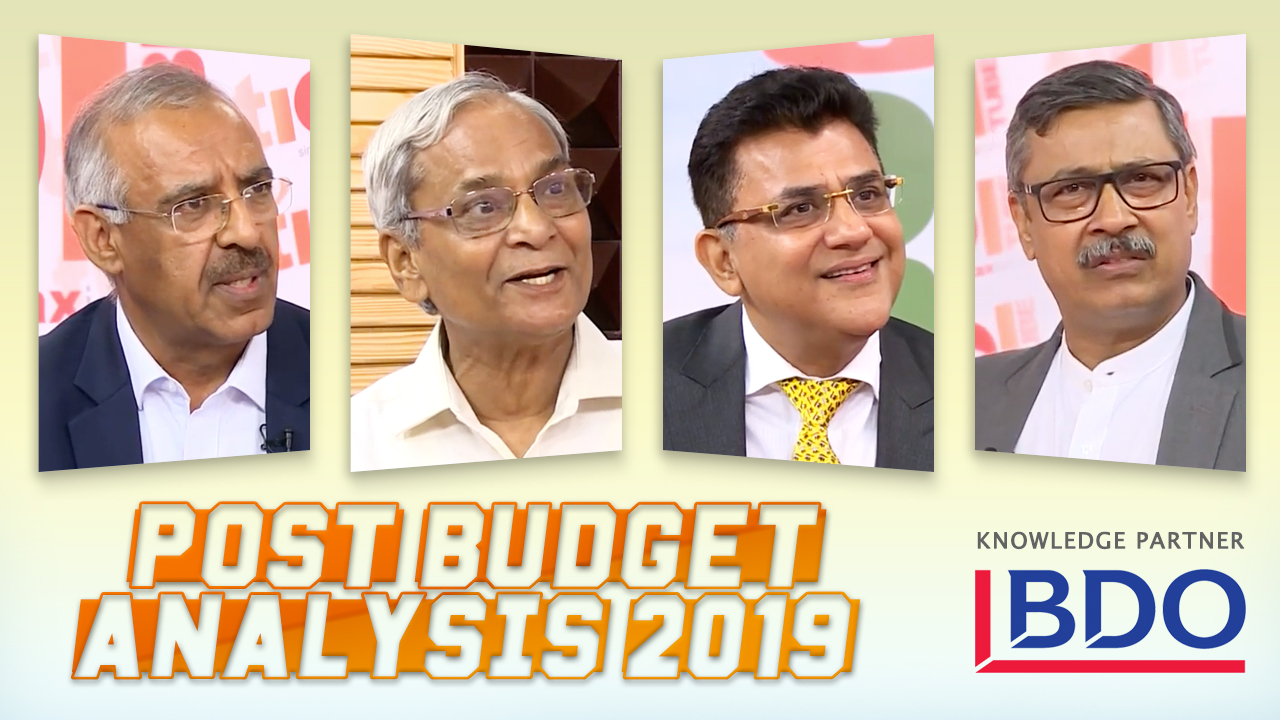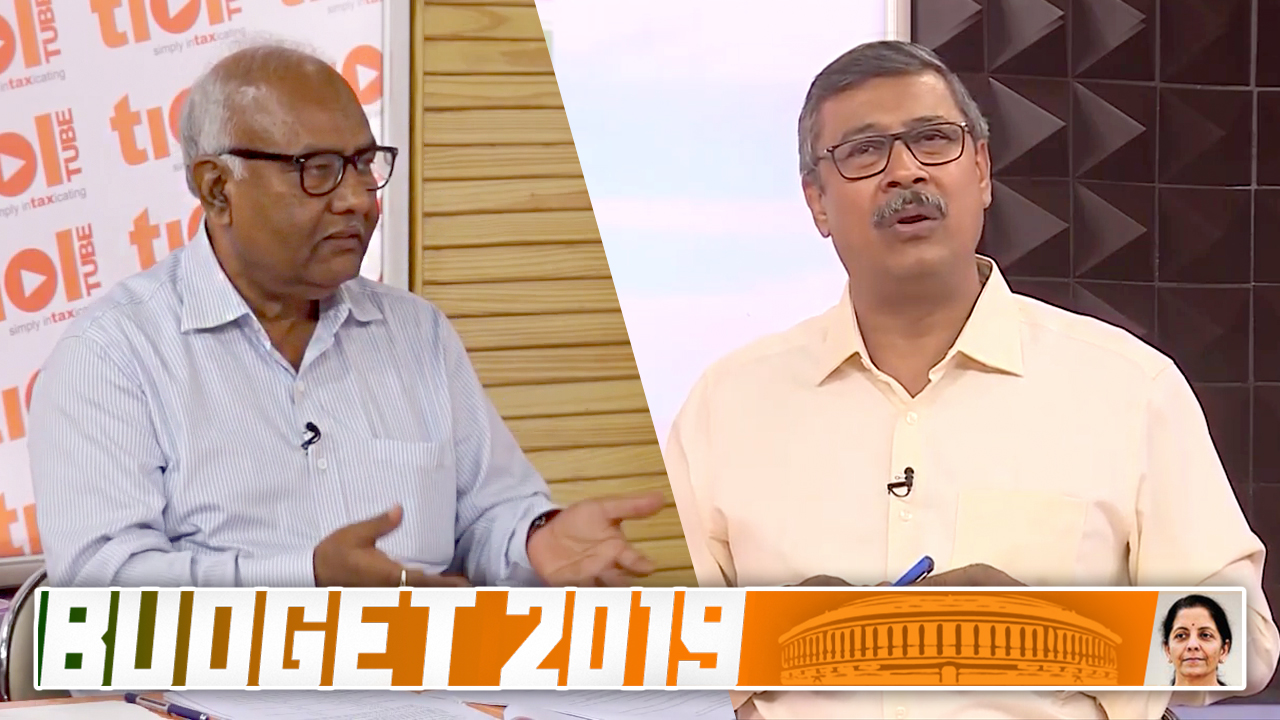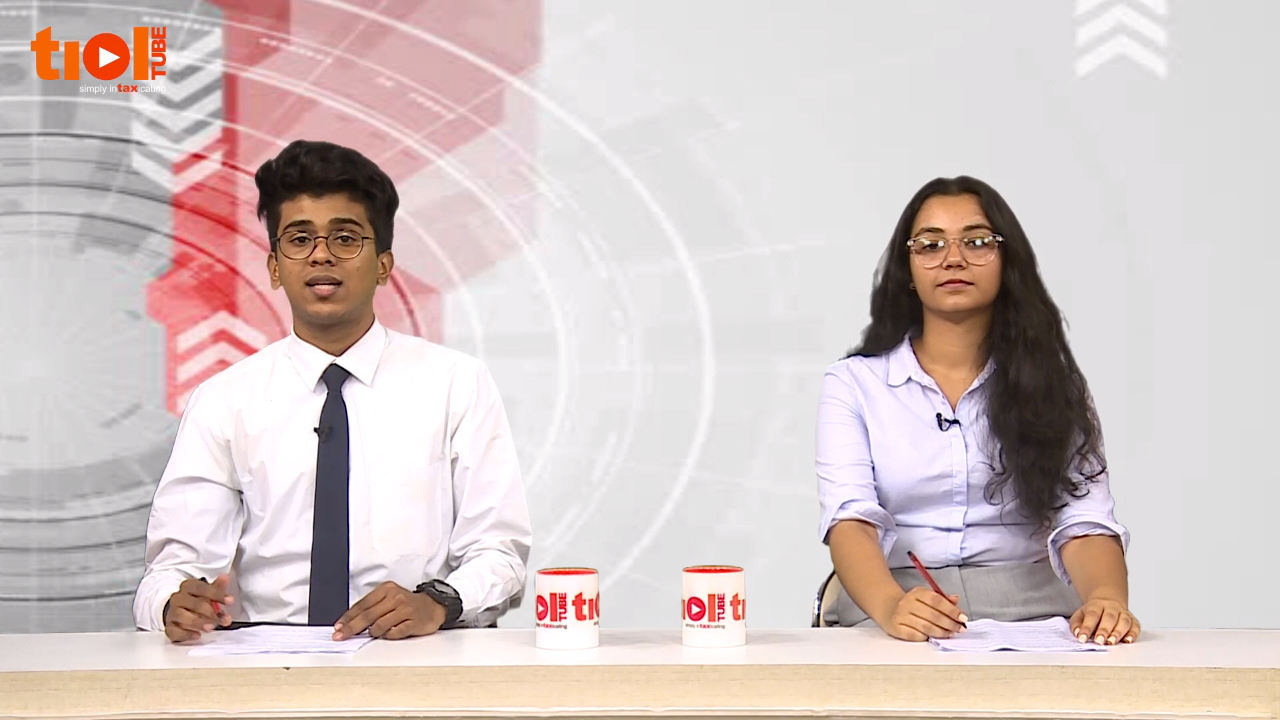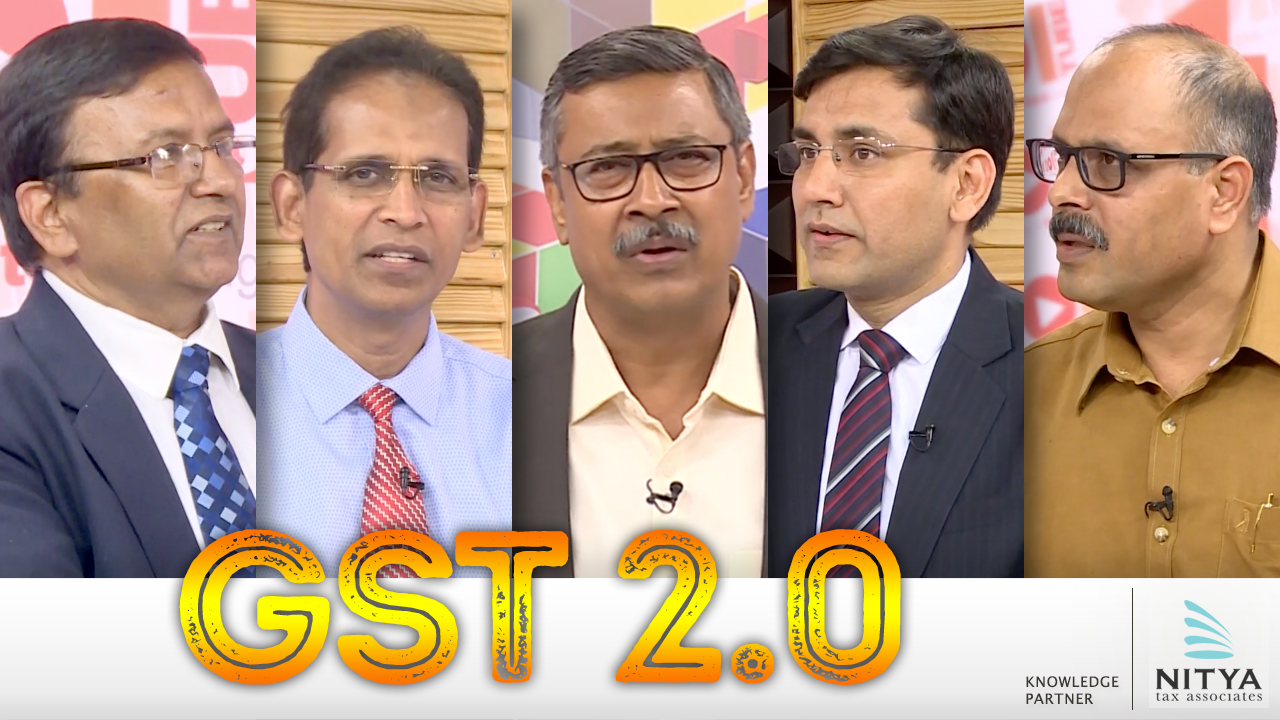|
SERVICE TAX
2019-TIOL-1470-HC-MAD-ST
Fairline Worldwide Express Vs CCE
ST - Section 35C of the CEA, 1944 - Sub Section (2) of Section 35C of the Act does not envisage any such distinction of the rectification application being made by the party or rectification proceedings undertaken by the Tribunal suo-motu on its own - Limitation period of six months applies to both the parties intending to seek the rectification of mistake apparent on the face of the record - Admittedly, in the present case, the orders sought to be rectified was passed on 19.02.2010, for which the application for rectification by the Assessee was filed beyond the period of limitation but no date of filing of such rectification application was given by the Assessee - since the Tribunal has rejected the application on the ground of limitation and apparently, there is no material before the Bench to arrive at a different conclusion, Bench does not find any merit in the contention raised by the Assessee that the period of limitation cannot be applied, where the application filed by the Assessee - Civil miscellaneous appeal is devoid of merit and the same is dismissed: High Court [para 8 to 10]
Appeal dismissed: MADRAS HIGH COURT
2019-TIOL-1964-CESTAT-DEL
N S Publicity India Pvt Ltd Vs CCE
ST - The assessee is engaged in providing the output service of "advertising agency service" and earning income from displaying advertisements on spaces provided by Jaipur Development Authority (JDA) - They availed Cenvat credit on the bills raised to them by these subcontactors - The Cenvat credit has been disallowed to them on the ground that above services provided to JDA were not covered under definition of input service in as much as those had no nexus to their output service i.e. advertisement agency service - As regards to the availability of Cenvat credit on the basis of documents issued by DMRC, the substantial particulars i.e. name and address of the service provider, service tax registration number of service provider, amount of service tax, assessable value, name and address of the service receiver has been mentioned in letters having service tax incidence of Rs. 23,48,404/- each and are in the nature of payment advice - These can be considered an invoice and can be accepted in terms of proviso to Rule 9 of CCR, 2004 as there is no allegation that the services covered by these bills have not been accounted for by assessee - The assessee has also produced the invoice dated 19/08/2010 in support of letter dated 15/12/2010 - Merely that these letters are not in the form of invoice cannot be a reason to disallow the Cenvat credit as substantial compliance of the provision under Rule 9(1) of Cenvat Credit Rules have been made - The mention of an old address in the letter due to in-advertence is a rectifiable mistake and cannot be a ground to disallow the credit - However, Tribunal is not inclined to accept Letter of acceptance dated 22/02/2010 for a service tax as a proper document as the same does not bear the registration no. of the service provider and cannot be considered as bill/invoice/ challan in terms of Rule 9(1) of CCR, 2004 - The assessee has failed to produce a corresponding invoice, payment advice for this amount - Accordingly, demand on the first two documents is set aside - The extended period of limitation as well as the equivalent penalty of Rs. 38,048/- under Rule 15 of CCR, 2004 read with Section 78 of FA, 1994 and interest as applicable under Rule 14 of CCR, 2004 r/w Section 75 of FA, 1994 on this amount of Rs. 38,048/- is also upheld - Consequential benefit, if any, on the demands set-aside is allowed: CESTAT
- Appeal partly allowed : DELHI CESTAT
CENTRAL EXCISE
2019-TIOL-1472-HC-MAD-CX
CCE Vs Kothari Sugars And Chemicals Ltd
CX - Refund - There is no formal form of protest prescribed in the Act or Rules and, therefore, as held by the Supreme Court in the case of India Cements Limited - 2002-TIOL-433-SC-CX, where it is held that even the letter of the Assessee raising the protest on the basis of payment of duty was enough to show that such duty was paid under protest - In the present case as well, similar protest was also made by the Respondent/Assessee, therefore, in view of Second proviso to Section 11B of the Act, the bar of limitation of six months cannot be invoked and applied in the case of the Respondent/Assessee - no merit in Revenue appeal, hence dismissed: High Court [para 9, 10]
- Appeal dismissed: MADRAS HIGH COURT
2019-TIOL-1471-HC-MAD-CX
CCE Vs Madras Cements Ltd
CX - CESTAT had allowed the appeal of the assessee and held that in view of the various judgments, the Assessee was entitled to avail cenvat credit on MS items/iron and steel used for fabrication of goods or support structures - For the purpose of computation of such cenvat credit, the matter was remanded back by Appellate Tribunal to the Adjudicating Authority - Tribunal had also held that since only the issue of interpretation was involved, the imposition of penalty in such cases was unwarranted and therefore, the penalties were set aside - Revenue is against this portion of the order.
Held: Remand of the Tribunal to the Adjudicating Authority was only for the purpose of computation of figures of such cenvat credit - Revenue does not dispute the entitlement of assessee to avail such cenvat credit - In these circumstances, the finding of the Tribunal that the case would not call for any imposition of penalty, which was found to be unwarranted on account of interpretational issues involved it, cannot be beyond the scope of power of the Tribunal under Section 35C of the CE Act -Words "as it thinks fit" in s.35C(1) of CEA, 1944 are wide enough to confer such power upon the Tribunal to exercise its discretion and give its verdict on the imposition of penalty, while remanding the case only for the purpose of computation of cenvat credit, for which Assessee was found entitled - So long as the question of entitlement of Assessee to avail such cenvat credit is not validly disputed or questioned by the Revenue, which in the present case has not so been done, the Revenue cannot insist upon a open remand for leaving the question of penalty of imposition also free to be reconsidered by the Adjudicating Authority - Bench does not find any illegality committed by the Tribunal in this regard and, therefore, appeal by Revenue is without any merit - Appeal dismissed: High Court [para 6 to 8, 11]
- Appeal dismissed : MADRAS HIGH COURT
2019-TIOL-1980-CESTAT-MAD
Sharda Motor Industries Ltd Vs CGST & CE
CX - Issue is whether credit is eligible on Outdoor Catering Services post 01.04.2011 - Revenue contention is that consequent to the change in the definition of ‘Input Service' contained in rule 2(l) of CCR, 2004, w.e.f 01.04.2011 the service of preparation and supply of food in the factory canteens is not entitled for credit - lower authorities have disallowed credit on the ground that these services of ‘Outdoor catering' were used for personal consumption of employees and hence excluded - appellant submits that the food supply/catering service is done in the premises of the factory by the service provider as mandated by the Factories Act, 1948; that these services are not for personal use of employee and is a statutory requirement to be complied failing which the company may face legal consequences; that the Larger Bench of the Tribunal in the case of Wipro Ltd. - 2018-TIOL-3256-CESTAT-BANG-LB held that canteen services in all circumstances would only be for personal consumption of employees; that if such view is accepted then there is no rationale for such qualification in the exclusion clause; that, therefore, providing canteen facility as per the requirements of the Factories Act would never be eligible for credit and this would render the requirement of being ‘primarily for personal use' as redundant; that the new service tax regime from 01.07.2012 is a new concept of negative list based levy and defining each and every service separately is a thing of the past and definitions which were in vogue up to 30.06.2012 are not at all relevant to understand scope of service tax levy from 01.07.2012 more particularly the definition of ‘outdoor catering'; that the United Nations Central Product Classification - Division 63 and Explanatory Notes thereunder mention that 'catering services are event based and services provided on ongoing basis would not be considered as a catering service'; that the classification of services under GST regime also supports this view [Group 99633 refers, notification 11/2017-CTR also refers]; that, therefore, the services provided by the contractors to the appellant, by way of cooking and serving foods to the appellant's employees, on a continuous basis is not ‘outdoor catering' as it is commonly understood but is in the nature of ‘other contract food services' and hence the exclusion in the definition of ‘Input Service' (rule 2(l) of CCR, 2004 refers) for ‘Outdoor Catering' would not apply to such services and consequently the appellants are entitled for tax credit; that the LB did not take note of the change in law after 01.07.2012 and has confined to the exclusion contained in clause (C) of the definition.
Held: Although the Single Member Bench is persuaded by the arguments made by the appellant that food supply services to a factory under the Factories Act cannot be considered as services for personal consumption of employees, yet the Bench is bound by the Larger Bench decision in Wipro Ltd. (supra) - decision of the Larger Bench prevails and respectfully following the same, credit on Outdoor Catering service is ineligible - however, the situation being interpretational as also having been referred to the Larger Bench, penalties imposed are unwarranted and hence set aside - demand and interest are not disturbed - appeals are partly allowed: CESTAT [para 7.1, 7.2, 7.3, 9]
- Appeals partly allowed: CHENNAI CESTAT
2019-TIOL-1963-CESTAT-KOL Commissioner Of CGST & CE Vs Rashmi Metaliks Ltd
CX - Revenue has prayed for withdrawal of appeal in terms of litigation policy instruction dated 11.07.2018 - Prayer allowed and appeal is dismissed as withdrawn: CESTAT [para 3]
- Appeal dismissed : KOLKATA CESTAT
2019-TIOL-1962-CESTAT-AHM
Sarpin Pharma Pvt Ltd Vs CCE & ST
CX - The assessee-company manufactures pharmaceutical products & medicaments - During the relevant period, the assessee claimed SSI exemption - The same was denied on grounds that the brand name under which the assessee sold such products was registered in the name of some other person - After remand by the Commr.(A) on two occasions, the adjudicating authority held that based on the records maintained with the drug authorities, it is the assessee which got the medicine names approved from the former - Hence the assessee was held to be the owner of the medicament & thus eligible for SSI exemption - On third round of appeal, the Commr.(A) reversed the findings in the O-i-O and allowed the Revenue's appeal on grounds that the product bore the inscription Registered trade mark of Mercury Antibiotics Pvt Ltd., Baroda and Marketed by Mercury Laboratories Pvt Ltd., Baroda - Hence the Commr.(A) held that the assessee was ineligible for SSI exemption - Hence the present appeal by the assessee.
Held: In case of medicines, all the material description including the ownership of brand name & marking, the labels are to be submitted to the drug authority, which then proceeds to approve the same - Hence even the mention of the two inscriptions cannot be ignored - If such fact is not otherwise contradicted, it becomes clear that the brand name of the medicine clearly belongs to Mercury Antibiotics Pvt Ltd., Baroda - Hence the assessee is ineligible for SSI exemption - Thus the O-i-A in challenge merits being upheld: CESTAT
- Assessee's appeal dismissed : AHMEDABAD CESTAT
2019-TIOL-1961-CESTAT-DEL
Vidya Metal Manufacturing Company Pvt Ltd Vs CGST C & CE
CX - The assessee-company manufactures Copper Strip and Wire falling under Chapter 74 of the First Schedule to the CETA 1985 & is registered with the Department - Pursuant to directions received from the DGCEI, the Revenue carried out inquiry and issued summons to the assessee - It was alleged that some dealer company had purportedly passed on inadmissible credit to the assessee - Statements of the assessee-company's director were recorded, admitting that the assessee purchased raw material from the dealer on payment of duty through normal banking channels and that the same had been utilized for manufacturing finished goods on payment of duty - SCN were issued to the assessee proposing to disallow credit on inputs on grounds that the manufacturer-assessee received only paper invoices from the dealers without actual supply of goods - In reply to SCN, the assessee requested for cross examination of witnesses, as the allegations in the SCN were based solely on their statements - Such request was refused & adjudication proceedings commenced - The credit was disallowed & equivalent penalty was imposed - Hence the present appeals by the assessee and its MD.
Held: The assessees are found to have discharged their onus as mandated under Rule 9(1) and 9(5) of CCR 2004, as laid down by the Allahabad High Court's verdict in Commissioner of Central Excise Customs and Service Tax. Vs Juhi Alloys Ltd. - Hence the O-i-A in challenge merits being quashed: CESTAT
- Assessees' appeals allowed : DELHI CESTAT
CUSTOMS
NOTIFICATION
ctariffadd19_024
Corrigendum CASE LAWS
2019-TIOL-1467-HC-KERALA-CUS
Sreelakshmi Jayanthi Vs ACC
Cus - The petitioner was summoned by customs authority in connection with an investigation related to a gold bar recovered from a dust bin in the ladies washroom - It appears that the petitioner's passport was retained by customs authority as it was suspected that the petitioner was involved in gold smuggling - The petitioner cannot be compelled to give the name and details of other persons - However, the petitioner is required to appear before the customs authority for interrogation, as and when directed - The passport shall be released to the petitioner forthwith - However, if the petitioner fails to appear before the customs authority as and when demanded, necessary steps can be taken by customs authority through the passport authority to secure presence of the petitioner - It is open for the customs authority to interrogate the petitioner through electronic means as well: HC
- Writ petition disposed of: KERALA HIGH COURT
2019-TIOL-1960-CESTAT-MUM
Gala International Pvt Ltd Vs CC
Cus - The assessee is in the business of export of various types of goods - They have filed three shipping bills all dated 31.01.2006 for export of Dyed and Printed Fabrics made from 100% Polyester Filament Yarn under DEPB Scheme - Department after carrying out the necessary market enquiry re-determined the FOB value and the benefit of DEPB was proposed to be reduced - Consequently, a SCN was issued to assessee proposing confiscation of goods seized and released provisionally under Section 113(d), 113(h) and 113(i) of Customs Act, 1962 r/w Section 11 and 14 of FTDR, 1993 for mis-declaration of quantity, value and excess DEPB claim; imposition of penalty under Section 114 of Customs Act, 1962 - The Tribunal in the first round of litigation, considering that there has been violation of principles of natural justice, remanded the matter to the adjudicating authority - The Commissioner in the de novo proceedings referred to the remand order of this Tribunal and recorded that there was no dispute on the PMV arrived at on the basis of necessary market inquiry with cloth merchants M/s Mangalam Textiles and M/s Teratex - The export value of the goods was ascertained as Rs.45.80 per yard by adding the transportation charges, packing charges, marking/lebeling, freight and profit margin - Further, he has observed that even though the departmental proceedings is not Court proceedings necessarily requiring the examination and cross-examination of witnesses, the assessee's request was accepted as per Tribunal's order and since notices sent to the address of said Mangalam Textiles and Teratex were returned with remark "Left", cross examination of witnesses could not materialize - In nutshell, thus cross-examination of M/s Mangalam Textiles and M/s Teratex could not be completed in accordance with direction of this Tribunal - However, the Commissioner instead of deleting the said evidence, relied upon the same in impugned order - The findings of Commissioner (A) relying upon the opinion M/s Mangalam Textiles and M/s Teratex without subjecting them to cross-examination, cannot carry any evidentiary value, hence ought to be discarded - Also, the Commissioner himself observed that the entire FOB value declared by assessee has been received and necessary BRC was filed with the Customs - In these circumstances, reducing the DEPB benefit on the basis of PMV, which could not be established by way of cross examination of the cloth merchants namely, M/s Mangalam Textiles and M/s Teratex and confirming consequential action on the basis of aid market inquiry, cannot be sustained: CESTAT
- Appeal allowed : MUMBAI CESTAT |







